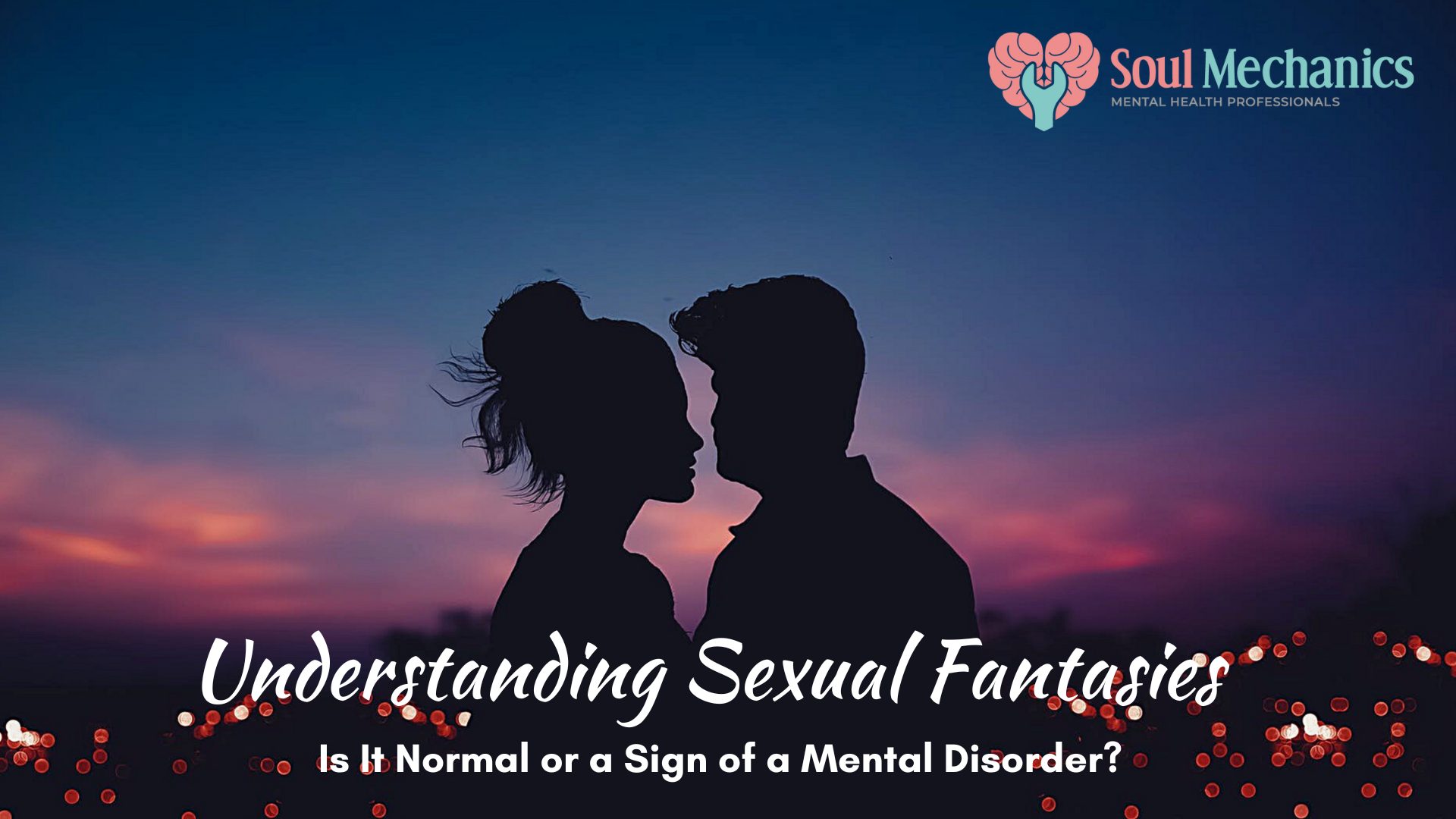Sexual Fantasies: Is It Normal or a Sign of a Mental Disorder?
Sexual Fantasies: Is It Normal or a Sign of a Mental Disorder?
Having sexual fantasies is an intrinsic part of the human experience and often a private aspect of human sexuality. They can range from the subtle to the explicit, from common scenarios to personalized desires. While most individuals engage in sexual fantasies without any negative consequences, questions may arise about whether these fantasies could be indicative of a mental disorder. As conversations about mental health become increasingly prevalent, it is common to wonder if the content of the fantasies has any impact on one’s psychological well-being. In this article, we will explore the world of sexual fantasies, examining whether these fantasies are just a normal part of the human experience or if they may signal the presence of a mental disorder.

What are Sexual Fantasies?
Sexual fantasies are the imaginative thoughts or mental images that arouse sexual desire. These fantasies encompass a broad range of spectrum, ranging from affectionate and romantic to adventurous and unconventional scenarios. However, it is essential to note that having sexual fantasies is a normal and healthy part of human sexuality. They serve various purposes, such as enhancing arousal, facilitating intimacy between partners, and providing a safe space to explore desires.
Normal Versus Concerning Sexual Fantasies
What is “Normal” in Sexual Fantasies?
Determining what constitutes a “normal” fantasy can be somewhat subjective, as individuals have diverse desires and preferences. What may be normal for one individual might be entirely different for another. Hence, normalcy is not a fixed standard but rather a spectrum defined by personal boundaries and consent.
Sexual fantasies involving consenting adults engaging in mutually enjoyable activities are regarded as healthy expressions of sexual desire. These fantasies can enhance arousal, deepen intimacy, and provide a safe space for exploring personal desires within the confines of consent and respect. For example, one might fantasize about trying new things with their partner by introducing variety into their intimate life while maintaining mutual consent.
Sexual fantasies that involve consensual and respectful scenarios are well within the bounds of healthy sexual exploration. These may include exploring different roles or locations that can contribute positively to one’s sexual experiences. This mutually agreed fantasy, built on consent and shared desire, is a positive aspect of one’s sexual imagination. This, in turn, can contribute to a rich and fulfilling sexual experience, allowing individuals to express their creativity, deepen their connection with their partners, and enhance satisfaction in the relationship.
When Sexual Fantasies Might Raise Concerns?
While the majority of fantasies are considered healthy expressions of desire, there are situations where the impact of these fantasies might raise concerns related to mental health. Suppose the sexual fantasies involve non-consensual or harmful themes where one’s partners are not willing to engage or participate. In that case, it can be a red flag. Furthermore, having persistent sexual themes or desires involving harming oneself or others may also be an indication of mental health issues. For instance, someone may find themselves fixating on scenarios involving non-consensual acts that may cause significant distress and discomfort, not only to the partner but to themselves as well.
If an individual experiences distressing or unwanted sexual fantasies that persistently intrude into daily life, it may be an indicator of a mental health concern. This could include obsessive fantasies or dreams that feel uncontrollable. These uncontrollable fantasies can start to interfere with daily functioning and social relationships or even cause significant distress in other areas of life. Having persistent and intrusive sexual thoughts or fantasies can disrupt concentration in working or studying, increase anxiety levels, and hinder the ability to maintain healthy relationships, suggesting an underlying mental health issue.

How to Address Concerning Sexual Fantasies?
It is worthwhile to note that the presence of sexual fantasies does not automatically equate to a mental health disorder. Stigmatizing or pathologizing sexual fantasies, in turn, can hinder open discussions about mental health and sexuality. However, if you or someone you know finds that their fantasies are causing distress or interfering with their daily life, seeking support from a mental health professional (e.g., a counselor or clinical psychologist) is the first step. The therapists are trained to navigate these conversations non-judgmentally to help individuals explore and understand the cause of their concerns.
It is also essential to create a culture of open communication in fostering a healthy understanding of sexual fantasies. Partners are encouraged to engage in honest conversations and share their desires, boundaries, or any concerns that may arise before engaging in any sexual activities. This can promote trust and ensure that both parties feel heard and respected.
Sex education plays a crucial role in disputing the myths and misconceptions surrounding sexual fantasies and mental health. Understanding that diverse fantasies are a normal part of the human experience can help reduce stigma and encourage empathy and acceptance.

What are Your Final Thoughts?
Fantasies are a natural and diverse aspect of human sexuality. The content and frequency can vary widely among individuals, and what matters most is the consensual, respectful, and non-harmful nature of these fantasies. However, if you or someone you know is dealing with distressing or intrusive sexual fantasies, remember that seeking help is a sign of strength, not weakness. Mental health professionals can provide valuable insights and support to navigate these personal aspects of life. Fostering open conversations and having adequate sexual education also promotes understanding, empathy, and a more inclusive approach to mental health and sexuality.
If you enjoyed reading this, why not broaden the horizon of knowledge by learning about "Inner Child: The Untold Story of Abandonment"?
You can read the blog here.
For more content related to mental health do follow us on our official Instagram.

